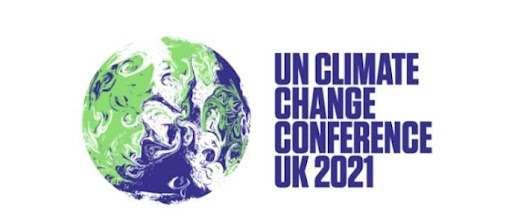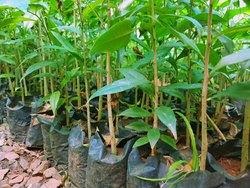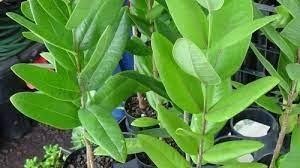Plant a Tree in Kenya
The Ministry of Education has urged learners in primary and secondary schools to increase forest cover
by planting trees in their institutions to provide shade, clean air and recreation spaces. The new
Competency-Based Curriculum also emphasizes on environmental conservation so that learners can
work with the community from an early age.
OOA will work will partner with local schools where teachers and pupils plant trees in their school
compounds.
The project involves each pupil planting a trees and taking care of them till they leave
school and the trees are well established.
The initiative will not just increase tree cover but will also involve planting fruit trees that will nourish and
boost children nutrition while increasing the country's forest cover.
Plant a tree in Kenya will make it simple for individuals, schools and businesses to plant trees and teach
children to cherish and protect the trees that sustain them. We want our children to have a future and
we'll do anything to fight for it.

COP26 – the world’s largest annual climate conference is currently taking place in Glasgow city of Scotland in the United Kingdom. Hundreds of world leaders are gathering to accelerate international action in tackling the climate crisis. For rural communities in Kenya, climate impacts also mean erratic weather patterns with increased droughts and flash floods. These degrade ecosystems and jeopardise food sources. Because most rural populations depend on agriculture and ecosystems to survive, the cycle of poverty and hunger is worsened, making them even more vulnerable. In his opening speech, UK Prime Minister Boris Johnson said, “The longer we fail to act, the worse it gets and the higher the price when we are eventually forced by catastrophe to act.” He promised the world that the UK will lead the fight against carbon emissions by planting millions of trees and ending the new sale of hydrocarbon combustion engines by 2030. Focusing on Kenya, President Uhuru Kenyatta, in his speech at COP26, highlighted plans to promote a sustainable economy and green manufacture by promising restoration of degraded water towers, accelerating forest restoration and increasing the country’s tree cover to at least 10%. COP26 is an opportunity to elevate the issues that affect the communities we serve.


We are working with local communities to restore healthy forests and reduce extreme poverty.
The vision of the project.
We want to make it simple for everyone to help the environment by planting trees. Together we can restore forests, create habitat for biodiversity, and make a positive social impact around the world.
How we are doing it
Education is a core part of our programme. The communities in Kenya where we work need knowledge and understanding to appreciate the importance of tree growing. We need to equip them with the skills to understand the importance of trees, promote tree planting in schools and communities and the climate issues facing Kenya and the world. Kenya’s natural resources must be preserved for its children to enjoy.
Why plant a tree?
Deforestation has drastically affected Kenya’s trees and forests. The devastating consequences have included increased soil erosion, infertility of the land and significant reduction of forest cover. Kenya’s total land mass is 224,960 Square miles Kenya is among the countries of the world with forest cover less than 10% of its total land mass. Factors that contribute to reduced forest cover include:
- Logging·
- Timber harvesting
- Charcoal production
- Grazing in the forests
- Weak community participation in forest management
- Lack of environmental education
- Kenya's current forest cover is only 6.1% (UN, FAO)
The population of Kenya is approximately 45 million. If every Kenyan planted five trees a year for 10 years the forest cover would increase from 6.1% to 10%. To start with we are partnering with the local community around the schools, colleges and universities where our sponsored children are to restore healthy forests and reduce extreme poverty. By planting trees you help reduce future CO2 emissions while providing co-benefits such as water filtration, shelter, food sources, poverty alleviation and biodiversity.
Why we are reforesting Kenya
Kenya, sadly is a country with as little as 6.1% forest cover. This makes it one of the least forested countries in the world.
Environmental Benefits
Animals depend on trees to survive. Trees provide a natural habitat for animals to thrive in. No trees -> no life -> no wildlife safaris. Trees prevent land erosion, and are hence the most efficient weapon against desertification.
Social Benefits of Reforesting
While planting trees in Kenya, we are working with the community and schools in our reforestation projects. Consequently while educating the children and their families on the importance of the environment and nature conservation. Climate change is harming our planet, but if we all make a small change, we can make a big impact. Make a donation today, and help us to plant trees to create more green spaces in Kenya and mitigate climate change.
Help offset future carbon emissions.
Plant trees for others.
Gift trees for family and friends birthdays, or for your sponsored child.
Plant trees where your sponsored child attends school.
Subscribe to monthly or annual tree planting to offset your everyday activities.

Every £1 you donate plants 4 trees You're on your way to planting trees and changing lives! Click here to donate or scan the QR code with your phone to get to the donation page.
OOA will work with local schools where teachers and pupils plant trees in their school compounds. The project involves each pupil planting a trees and taking care of them till they leave school and the trees are well established. The initiative will not just increase tree cover but will also involve plating fruit trees that will nourish and boost children nutrition while increasing the country's forest cover.
